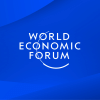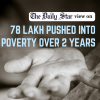Govt’s bank borrowing in check

The government's borrowing from the banking system has remained in check so far in the ongoing fiscal year thanks to lower expenditures and higher revenue collection.
This is a reverse from a trend seen in the last fiscal year when the government took a record Tk 98,000 crore in loans from the Bangladesh Bank to run its operations, which contributed to stoking inflation.
The total borrowing from the banking sector stood at Tk 101,826 crore in 2022-23.
The inflationary situation, which has remained at an elevated level for the past one and a half years, forced the government to change its borrowing policy for the current fiscal year.
In July and August, the first two months of 2023-24, the government did not borrow any money from the central bank, rather it returned Tk 22,088 crore
In July and August, the first two months of 2023-24, the government did not borrow any money from the central bank; rather, it returned Tk 22,088 crore.
However, it borrowed Tk 18,805 crore from commercial banks and another Tk 2,862 crore from non-banking sources such as non-bank financial institutions, insurance companies and individual investors.
This brought down the government's net borrowing by Tk 421 crore, data from the central bank showed.
Lower development spending and a relatively higher revenue collection by the National Board of Revenue (NBR) have mainly helped keep the government borrowing from the banking system under control.
In July-August, the government spent Tk 10,542 crore under its annual development programme. This includes Tk 6,854 crore from the government source and the rest came from the foreign assistance portion.
Data on the spending under the revenue budget was not available immediately. But expenditures in the form of subsidies and other purposes have not picked up yet, said an official of the financial ministry.
Revenue collection increased nearly 15 percent year-on-year to Tk 46,233 crore thanks to a rise in VAT from multinational companies, according to the NBR.
The higher tax receipts have handed a surplus amount to the government, allowing it to pay back loans. But how long the government can continue repaying remains to be seen since expenditures are expected to go up in the later part of FY24.
An official of the finance ministry who works in its budget implementation department says the government's main target is to bring down inflation before the general elections, due in January.
The debt management committee, which comprises officials from both the ministry and the BB, has been instructed not to take any loans from the central bank until inflation falls.
The overall inflation rose 23 basis points to 9.92 percent in August driven by a 12.54 percent surge in food inflation. It was 9.76 percent in the previous month.
The Consumer Price Index rose 9.02 percent in FY23 against the government's revised target of 7.5 percent, the highest in 12 years. This was much higher than the 5-6 percent average inflation seen in the decade before the Russia-Ukraine war.
A dearth of borrowing from the BB has an effect on the non-food inflation and the latest data from the Bangladesh Bureau of Statistics appeared to support that.
Non-food inflation stood at 9.60 percent in June. It fell to 9.47 percent in July and further to 7.95 percent in August.
Economists have long demanded the government stop securing loans from the banking system not only to lower inflation but also to help keep enough liquidity with commercial banks so that entrepreneurs and businesses can access adequate funds.

 For all latest news, follow The Daily Star's Google News channel.
For all latest news, follow The Daily Star's Google News channel. 








Comments